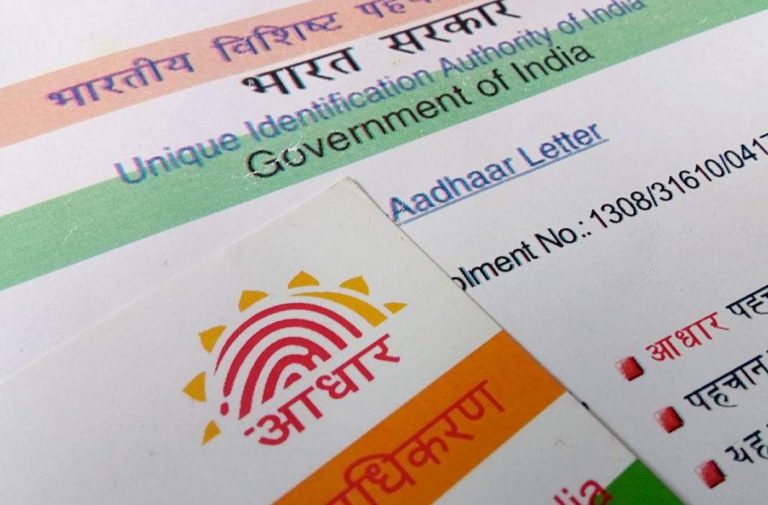
The Supreme Court Constitution Bench of Chief Justice Dipak Misra and Justices AK Sikri, AM Khanwilkar, DY Chandrachud and Ashok Bhushan resumed hearing on the batch of petitions challenging the validity of Aadhaar Act and Aadhaar linkages on Wednesday (April 18) with senior counsel Rakesh Dwivedi, speaking for the government.
The Supreme Court Constitution Bench of Chief Justice Dipak Misra and Justices AK Sikri, AM Khanwilkar, DY Chandrachud and Ashok Bhushan resumed hearing on the batch of petitions challenging the validity of Aadhaar Act and Aadhaar linkages on Wednesday (April 18) with senior counsel Rakesh Dwivedi, speaking for the government.
Dwivedi says that when it comes to authentication, 1:1 matching exists. However, for the other purposes, the matching ratio is 1:10. That is the way the algorithm is prepared.
He also talks about three alternatives introduced under section 7. They are:
- Authenticate
- In an attempt of a failure, present the QR code present on the Aadhaar card
- In case not applied, the individual has to provide the EIN number.
There can’t be denial of service. Option to furnish proof of possession of Aadhaar number under section 7 if authentication can’t be done. If nothing is available, applying for Aadhaar is a must.
Regulation 12 is also tailored to section 7 of the Aadhaar act.
He said even if one authentication fails, it’s difficult to believe that all the alternatives will fail. Except for there has been a complete breakdown of the services.
In Sikkim, there is a 99% enrollment status, he pointed out. In the previous bill, earlier it was the ration card. Now, the central government is competent enough to declare either the ration card or proof of possession of Aadhaar number.
Referring to the submissions of Kapil Sibal, Dwivedi submits that earlier they said it is in violation of fundamental rights. But under the Act itself, we’ve provided various alternatives. It’s a matter of privilege if as an individual we’re known and recognised.
May be the method is wrong, but it’s ultimately the matter of pride pertaining to the condition of recognition. There has to be a rational nexus which is not in excess.
Justice Ashok Bhushan says that another aspect could be that all these ration cards, etc are not universal; they’re sectoral.
Dwivedi said such cards are not portable. Aadhaar card is unique, portable. It is accepted all over India.
Justice Chandrachud said: “Fingerprints per se do not contain any information but when such fingerprint is attached to every little transaction, such information becomes a source of aggregation.”
Dwibedi said that in most cases, authentication is required for once. He said that realistically speaking, there’s no trail of authentication from morning to evening. No real time tracking is done.
At this Shyam Divan interjected, saying that the demo of withdrawing Rs 100 using a thumbprint was shown in the court. That’s tracking.
Where is it provided in law that you need to give thumbprint every time you transact? You only have to link it with your bank account.
Dwivedi refers to the preamble of the constitution emphasising on the two parts of the preamble. “To secure to all its citizens….”- 1st part and “promote” is the second part.
He mentions Justice Sikri’s view from NALSA case. Justice Sikri says we have to give recognition to both- dignity and conflict.
The CJI said: “Any method which requires biometrics, requires storage. The point is when you take fingerprints for Aadhaar, it gets stored in Aadhaar. This is an invasion of right to privacy.
Dwivedi submits that any system which involves biometrics will require storage of biometrics- either at single point or multiple. He mentions cases from various countries in support of his argument. He goes on to quote from Nelson Mandela’s speech.
The matter continues tomorrow.
—India Legal Bureau

